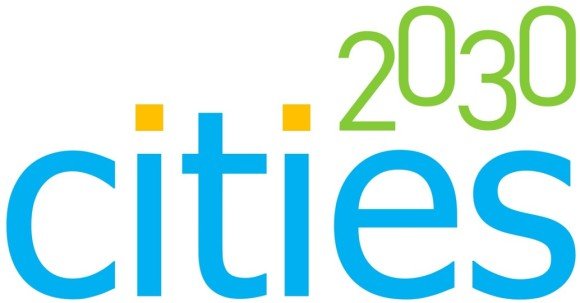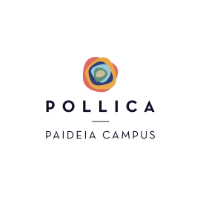Living lab: Innovation action plan
1. CRFS vision 2030 and challenge statements
Vision: “Pollica 2050 — Mediterranean Living” is a project on territorial development and regeneration promoted by the Municipality of Pollica and the Future Food Institute, which operates through the 6 areas of Integral Ecology with the aim of creating a stable community in a territory where services are sewn on its needs. Each area is associated with concrete actions that have positive impacts on ecosystems, communities and the economy.
Challenge statements:
Overall challenge: How might we regenerate the rural territory in a participatory way in order to bring about truly sustainable and integral development for the community?
Sub-challenge statements:
- How might we enable the ecosystem to regenerate and feed itself in order to persist over time?
- How might we leverage the territory to repopulate it and to improve livelihoods in order to generate collective prosperity?
- How might we encourage individuals to think and act in coherence with the Mediterranean principles in order to promote the integral ecological lifestyle/mindset?
2. Collaboration with stakeholders
The Future Food Ecosystem is made of different stakeholders that collaborate with us and support our mission. The main categories are: UN Agencies, Public Bodies and Institutions (Municipalities, Universities, etc.), Public and private organisations (Foundations, Associations, Pro Loco, etc.), Academia (Schools, Universities and several professors), Trade associations that represent collective interests, Research and training companies, Cultural and creative enterprises, Manufacturing firms, especially in the agri-food sector, Corporates and startups, Companies providing services in the field of utilities (energy, water, waste, mobility, etc.) and services with high added value and characterised by a high level of environmental sustainability, Many citizens, of all ages, are eager to participate in a phase of co-management of the village.
3. Living Lab resources
| Facilities | Resources | Investments needed |
|
Castello dei Principi Capano Center for Studies School and Experimental Mediterranean Laboratory of Integral Ecological Regeneration Venue for events Food Alchemist LAB |
Team made by 6 team members working only on the Paideia Campus and the Living Lab project, of which 2 are Innovation Facilitators, whose role is to to advance the participatory multi-actor approach and guiding the execution to achieve best practices, developments, and innovations. |
Beyond the Cities2030 projects we are looking to be working with clients in order to be financially sustainable beyond the Europeans Grant contributions. The monthly burnout is approximately 40.000 €. |
4. Living Lab experiments
1. PAIDEIA DIGITAL ACADEMY
The first Paideia digital academy courses were held between July and August 2022, and they will be
replicated after improvement in the fall of 2022. Adventure & Videomaking, 3D eco modelling and design, archeo minecraft and coding. All the courses (of varying duration, from a weekend to a week) are designed to make young people reflect on the importance of the territory in which they live and on building narratives that pass on the cultural wealth that exists, inextricably linked to that of food.
| Specific Key Objective | Thematic Working Group | Study question | Target | Monitoring System | Timeframe |
| Develop food culture and skills | Ecosystem services | How can we take advantage of the digital tools to pass through values? | Children and teenagers, mainly local | # of participants | Learn |
2. PAIDEIA | REGEN ACADEMY
A food diplomacy project that identifies in conviviality and the practice of the vegetable garden –
emblematic elements of the Mediterranean diet – a powerful tool for inclusion, regeneration and integral ecological development. The LL represents a plural, welcoming and inclusive community that makes itself available to offer a process of integration. After initial selection, microlearning and digital coaching phase, the selected young immigrants arrive at the LL in Pollica for 3 months of training during which they will be involved in hands-on activities and immersive learning experiences, networking and community projects. An extensive, hands-on learning course in which they will discover and study the principles of agroecology and regenerative agriculture.
| Specific Key Objective | Thematic Working Group | Study question | Target | Monitoring System | Timeframe |
| Develop food culture and skills | Ecosystem services | How can we spread the knowledge of regenerative agriculture and increase occupation, while teaching skills to less fortunate people? | Immigrants | # of participants | Build |
3.IL BORGO DEL TESORO – THE TREASURE VILLAGE
After the first community hackathon designed to find solutions to local problems, held on 26th and 27th of March, the winning team worked on the idea in June, July and August to optimise it and make it a reality.
Through an ongoing participatory process, the idea was transformed into reality on 21st August 2022
with a treasure hunt aimed at getting young people to reflect on the importance of water resources,
biodiversity, the value of the Mediterranean diet, the role that the elderly have in society until reaching
the final stage, a vineyard on top of the mountain on which Pollica stands. Here the final moment took place – in a vineyard of the municipality that was abandoned until a few years ago, grapes are growing again and it is now up to the entire community to contribute to take care of them.
| Specific Key Objective | Thematic Working Group | Study question | Target | Monitoring System | Timeframe |
| Develop food culture and skills | Ecosystem services | How can we communicate the heritage and values that surround the village to the local community and tourists while empowering them to take action? | Local children, adults and tourists | # of participants | Learn |
4. CONSORTIUM FOR THE TOURIST DEVELOPMENT OF THE LANDS OF THE MEDITERRANEAN DIET
We promoted the establishment of the Consortium which aims to protect, enhance and care for the
general interests of the Mediterranean Diet tourism sector. The main purpose is the dissemination of
the Mediterranean diet to protect the state of health and for the study of its components. Also to initiate the process, beginning from October, to become an important presence in the area to disseminate knowledge and information and to become a reference point for the local mountain tourism sector.
| Specific Key Objective | Thematic Working Group | Study question | Target | Monitoring System | Timeframe |
| Protect & preserve natural resources | Ecosystem services | How to aggregate and maximise the dormant resources already in place to enhance mountain tourism? | Tourists | # of tourists in accommodations, restaurants, etc. during low seasons | Build |
5. TRAME MEDITERRANEE – BLUE EDITION
A one-week programme held in July 2022, which stemmed from the meeting between the Pollica LL and
Cilento fishermen during the EU Agrifood Week held in May, which was created with the aim of raising
awareness of the immense value of the intangible heritage of the Mediterranean Diet. The experimental programme aimed to involve passionate students, fishermen, scientists and researchers, with the objective of drafting a proposal for a law to establish and manage an Experimental Marine Area. Participants learnt about sustainable fishing and non-sustainable fishing, collected litter on beaches and produced a manifesto for the first experimental marine area in which the role of fishermen becomes strategic again.
| Specific Key Objective | Thematic Working Group | Study question | Target | Monitoring System | Timeframe |
| Protect & preserve natural resources | Ecosystem services | How to raise awareness on the challenges of sustainable fishing and implement rightful actions? | Youth, researchers, fishermen, whoever has an interest in the marine environment | # of municipalities involved in the experimental marine Area | Learn |
5. Other Living Lab's measures
We are working on task 4.1 and 4.4, working on events to engage the local community, capacity building events and looking for additional funding opportunities. We are also engaging our stakeholders and potential clients in order to increase our Living Lab financial sustainability.
6. SMART Goals
EXP1_Grow the numbers of participants by 10 within the next 3 months. This will be accomplished by
further communicating and disseminating the courses through social media platforms, flyers and
day-to-day interactions with the community.
EXP2_Educate at least 8 immigrants on regenerative agriculture. This will be accomplished through an accompaniment path to entrepreneurship and cooperation.
EXP2_Reach at least 2 immigrants employed in regenerative farms within the next 6 months after taking part of the course. This will be accomplished through an accompaniment path to entrepreneurship and cooperation.
EXP3_Grow the number of people engaging with the local natural resources around the village by 20%. This will be accomplished by further communicating and disseminating the presence, organising events.
EXP4_Increase the % of mountain tourism and presence in the mountain during the low season. This will be accomplished through the action of the Consortium, with communication activities, and promotional events.
EXP5_Involve at least 10 municipalities to support the proposal of legislation establishing an Experimental Marine Area.
7. Communication, dissemination and exploitation
Future Food works closely with its stakeholders to disseminate what it is doing. We have also signed a
partnership with Dot Academy, which provides digital training that is supporting the communication.
We attend events and conferences, we regularly post on social media and we write articles on Medium
to make people aware of the Pollica 2050 regeneration model.
8. Continuity- and scale-up measures
Through collaborative co-creation, verified through active prototyping, the “Pollica 2050 — Mediterranean Living” project has built a strategic model that builds inclusive prosperity starting from the integral ecological approach. Built upon the hypothesised and prototyped management tools, the Pollica 2050 project is actively developing a tangible ecosystem capable of feeding and regenerating itself to sustain throughout time.
9. Risk assessment
Create an open ecosystem, capable of eliminating cultural, logistical, and bureaucratic frictions, facilitating collaborations between the various stakeholders and between the various disciplines.
Continue the collaboration with companies and trade associations that will be able to implement the tested models on a large scale in the future.
Work to create a community and a territory capable of welcoming this experimentation: Pollica and an “Ecosystem Builder” to facilitate the process.
The management model is capable of involving all stakeholders in a harmonious way to give the right operational tools to ensure the ecosystem a flexible and inclusive structure that promotes economic development, which aims at social cohesion, and facilitates the spread and scalability in the territory. Therefore, the management model is made for the use of different tools.

.jpeg.d6c78a680a91b987a93a6721d4557e0a.jpeg)
